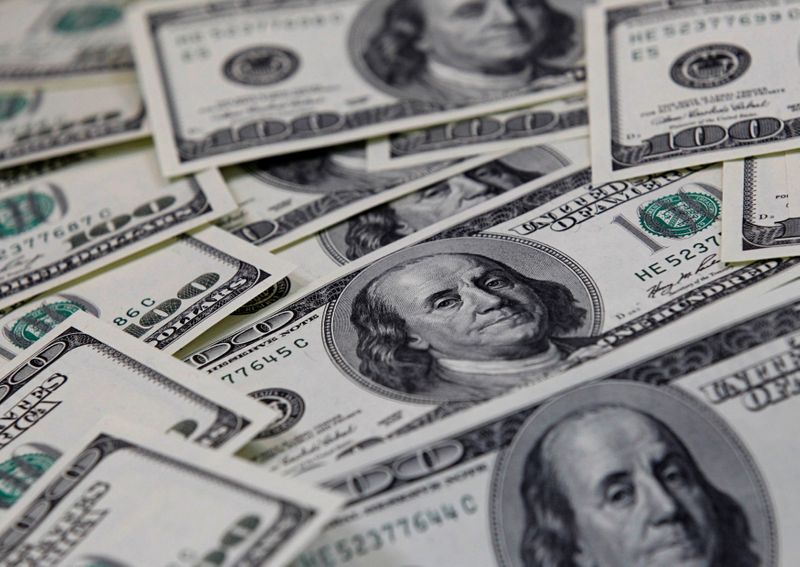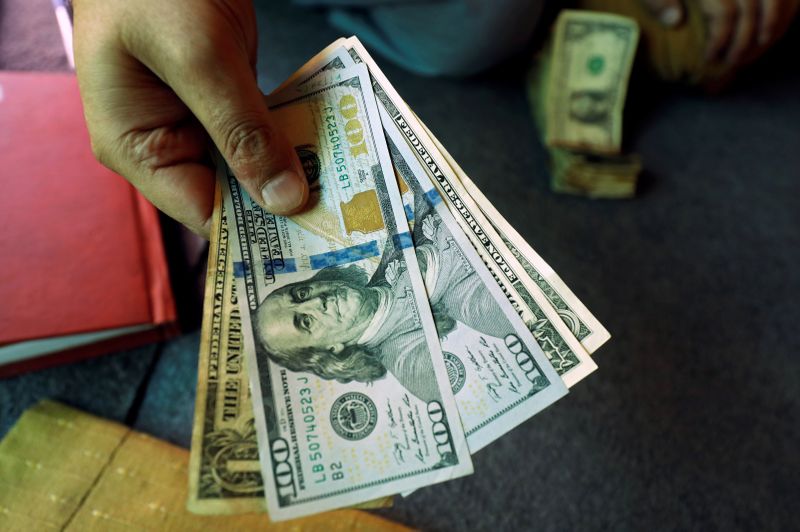By Saqib Iqbal Ahmed
NEW YORK (Reuters) - The dollar rose on Wednesday as investors turned more cautious on riskier assets amid growing worries about the economic impact of the COVID-19 pandemic and as a downward revision to Germany's growth forecast weighed on the common currency.
Investors showed an aversion to riskier assets on Tuesday with stocks and Treasury yields slipping while the safe-haven U.S. dollar drew buyers.
"Today is a solid risk-off day for sure," said Minh Trang, senior FX trader at Silicon Valley Bank.
"You see yields ticking lower and equity markets are dropping. There are a lot of concerns about the effectiveness of the vaccine roll out in the United States," Trang said.
Global coronavirus cases surpassed 100 million on Wednesday, according to a Reuters tally, as countries around the world struggle with new virus variants and vaccine shortfalls.
The U.S. Dollar Currency Index was 0.56% higher at 90.666, its highest since January 18.
The euro was further pressured after the German government on Wednesday slashed its growth forecast for Europe's largest economy to 3% this year, a sharp revision from last autumn's estimate of 4.4%, caused by a second coronavirus lockdown.
The euro was 0.59% lower in the day against the U.S. dollar.
The risk-sensitive Australian dollar sank 0.79% to $0.7682, while the New Zealand dollar 0.83%.
Silicon Valley Bank's Trang cited the historically elevated level of bearish bets against the greenback as part of the reason for the U.S. currency's strength as investors rush to trim those wagers.
Despite the dollar's recent rebound from multi-year lows, bearish on the U.S. currency are at a decade-high.
"Anytime you see that kind of buildup and you see a certain reversal, you will see a substantial move," Trang said.
Investors are also waiting for the conclusion of the U.S. Federal Reserve's policy meeting later on Wednesday even though the Central bank is expected to signal no change in policy.
Sterling rose to a fresh eight-month high against the euro on Wednesday as Britain's faster COVID-19 vaccine rollout than in the European Union offered support to the pound.

Meanwhile bitcoin fell about 8% in a volatile session, slipping below $30,000 for the first time since Jan. 22.
